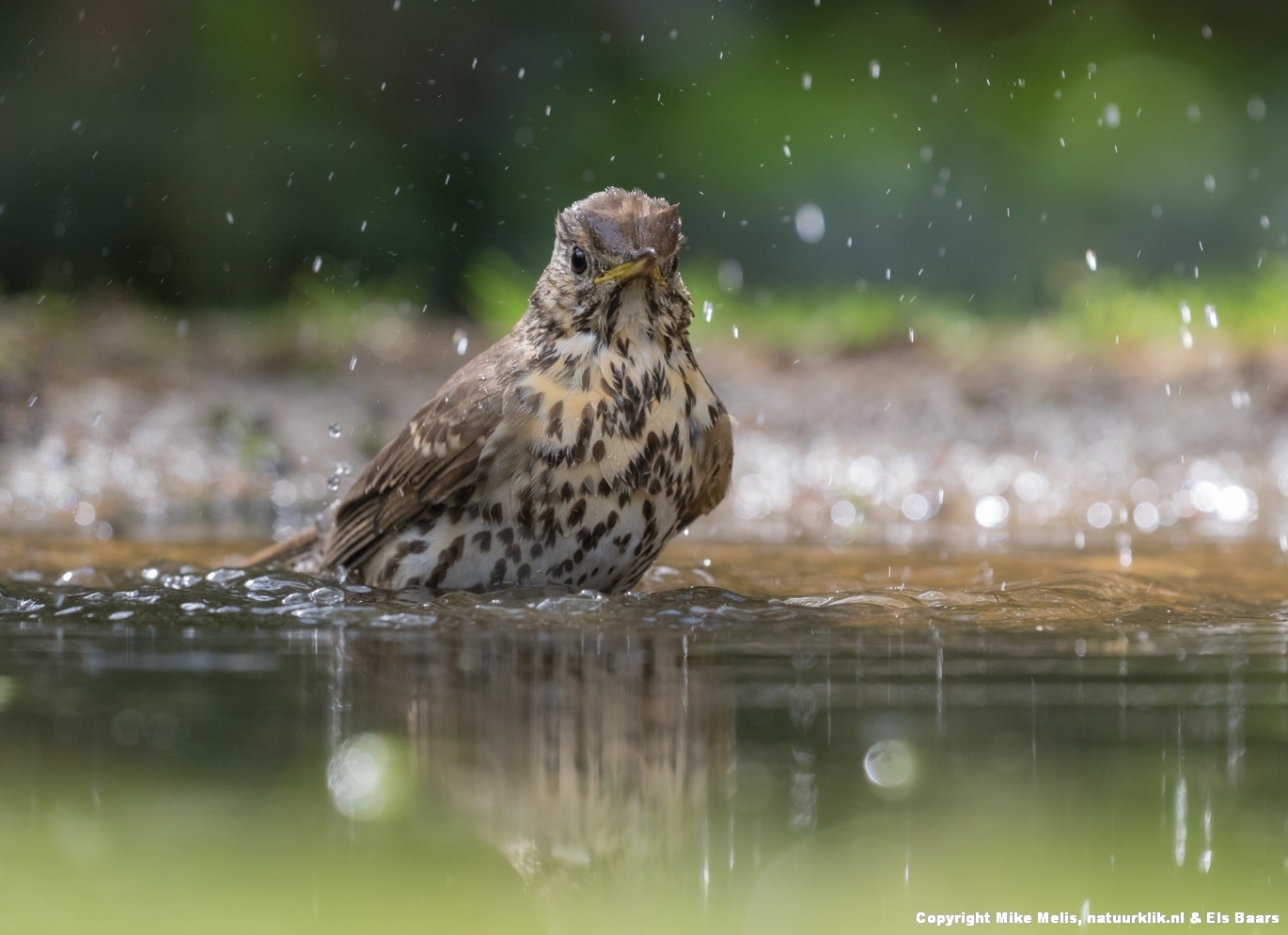Every gardener welcomes a song thrush into his garden, because it readily devours so many snails. If you watch carefully you will see how this bird cracks open the shells on any steady stone it can find closeby. That stone is his ‘anvil’.
The song of the thrush has rich warm tones. He often repeats the intermezzo of his song three times, but frequently sings out of rhythm. Why he has an anvil and sings in this way is the subject of the following new fairytale.
Once upon a time there was a smith who sang all the time. While he was working, songs filled the air of the forge accompanied by the rhythmic blows of the heavy hammer on the glowing hot iron. Although his singing was not exactly sweet to the ear, his enthusiasm touched everyone who visited his workplace.
The smith glowed with pride because his son Turdus was blessed with a beautiful clear voice which took on rare warm tones when the boy reached puberty. His son was to become what the smith had failed to do: a famous singer.
There was, however, one major problem: Turdus had a poor sense of rhythm. To make matters worse, nor could he remember lyrics. Even after only a few lines he would already have forgotten what came next. Day in day out he trained. In the mornings together with his mother he tried to learn a sense of rhythm by hitting the hammer on the glowing hot iron. The boy loved the power of the hammer striking the anvil, but still he could never manage to make this happen rhythmically. In short, it was a disaster which began to drive Turdus crazy. Sometimes he would run away from home, climb up into a tall tree so that his parents could not find him and then sang his own song at the top of his voice. When he had almost reached adulthood and realized how unhappy his failures made his parents, he climbed into the tallest tree he knew, never to leave his new habitat again. He sat there for so long that after a while he turned into a bird.
In his new guise everyone now loves to stop and listen to him. His warm voice carries far and wide from the tall tree or roof top where he is perching. Listen carefully though…Turdus the song thrush is one of the first birds to start singing at daybreak and one of the last to go to sleep. His songs are short and repetitive, but are never quite the same. He often repeats verses three times. When he seems to have lost count, he sings a verse twice or sometimes even five times over. Each time followed by a pause. It’s as if he is then stopping to ask himself: ’How far have I got?
Hammering on an anvil had become such an integral part of his life though, that to this day Turdus continues to live from this skill. He strikes the snails on the anvil for as long as it takes to crack their shell. Then he readily eats up the delicious soft meat inside.
Song thrushes (Turdus philomelos ) are to be found almost everywhere, although damp dense woods with alder thickets and ash trees are among their favourite haunts. As well as the snails they break open on their anvils, song thrushes also eat insects and worms. Berries figure on their winter menu. Song thrushes are relatives of the blackbird and are about the same size only lighter in colour and shier. The song thrush likes to forage for his food out in fields. Their territorial singing already starts in January.
© Els Baars, Natuurverhalen.nl

